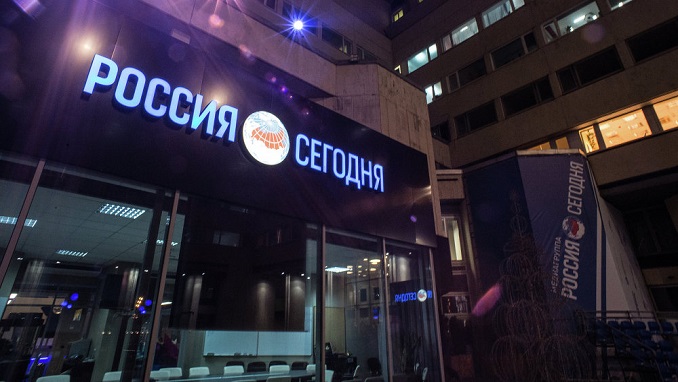A U.S. federal judge has ruled a Florida-based broadcasting company that provides Russian programs to a Washington radio station must register as an agent of a foreign government, RFE/RL reported.
In a press release Tuesday, the U.S. Justice Department said that RM Broadcasting of Jupiter, Florida, was essentially providing publicity for Russia through an agreement with state-run Rossiya Segodnya. That entity’s Sputnik programming is broadcast all day on WZHF-AM in the Washington area.
RM Broadcasting had asked Florida U.S. District Judge Robin Rosenberg to rule it’s not required to register as a foreign agent, but she sided with the Justice Department. Officials say this was the first civil enforcement since 1991 of the Foreign Agents Registration Act.
“The American people have a right to know if a foreign flag waves behind speech broadcast in the United States,” said John C. Demers, assistant attorney general for national security. “Our concern is not the content of the speech, but providing transparency about the true identity of the speaker.”
RM Broadcasting attorney Nicole Hughes Waid said the Justice Department has an overly broad interpretation of the foreign agent registration law.
“We respect the court’s decision, but disagree with the outcome,” she said. “We believe that this interpretation will have serious repercussions for other conduits of communication, such as internet providers, social media networks, and other members of the broadcast industry.”
Аccording to the Justice Department, Rossiya Segodnya was created by Russian President Vladimir Putin in 2013 to “advance Russian interests abroad.” Its goal is to “provide information on Russian state policy and Russian life and society for audiences abroad,” according to Putin’s decree.
In court documents, RM attorneys said the company was not in a joint venture with Rossiya Segodnya but rather had an “arms-length” deal in which it resold radio airtime to the Russian entity. RM, they said, had no authority or control over any of the programming content.
Rosenberg, however, found that a 2017 agreement between the two put RM under the direction or control “of Rossiya Segodnya and as its “publicity agent,” requiring RM to register.












